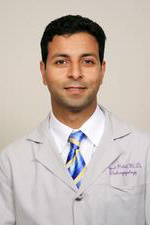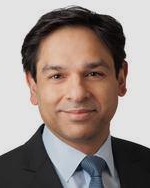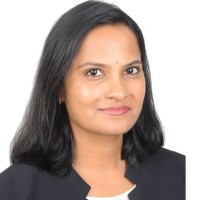Head & Neck Oncological & Reconstructive Surgery Fellowship
The Head & Neck Oncological & Reconstructive Surgery Fellowship is an Advanced Training Council Fellowship from the American Head and Neck Society. Its goal is to provide training for individuals dedicated to careers in head and neck surgical oncology through training in the areas of interdisciplinary management, complex head and neck oncologic surgery and research. This additional expertise emphasizes scholarship, critical analysis of clinical problems and development of additional skills in the performance of techniques required for the practice of the subspecialty, including consultation skills and multidisciplinary treatment planning with emphasis on scholarship and knowledge or experience in basic and clinical research methodologies. Fellows will receive training in all aspects of surgical care, including initial consultation, multidisciplinary tumor board treatment planning, pre-operative evaluation, surgical treatment, reconstructive surgery and long-term cancer surveillance.
Connect with Us
About the Program
Curriculum
The curriculum is designed to include formal education in a variety of non-surgical disciplines. This includes medical oncology, radiation oncology, radiology, speech therapy, pathology and endocrinology. During November and December, the fellow spends dedicated time in these other disciplines and operative time will be diminished for several weeks during these blocks. This is designed to give structured education in these non-surgical areas that are paramount to comprehensive care of the head and neck cancer patient.
Research
At the beginning of the fellowship, there is a dedicated meeting between the fellow and the program director to discuss ongoing projects within the department and particular research interests of the fellow. These will be explored and a follow-up meeting will be planned before the end of July by which time the fellow will have developed one to two clinical projects. Attention will be paid to the pertinence of the clinical question being addressed, the feasibility of the project and emphasis on completion of projects during the fellow’s one-year tenure in the program. The expectation is that such projects would result in presentation at a national/international meeting and ultimately publication.
There will be regular meetings to discuss progress on research projects, and this progress will also be part of the fellow evaluation process.
Retrospective studies can be facilitated by our tumor registry and data warehouse that can both be queried for case-finding. Prospective studies can also be considered, provided there is high likelihood that such a study can be completed with the one-year timeframe. We also have resources in healthcare delivery with a good track record using NSQIP and SEER to study head and neck cancer care on a larger scale. The fellow will be encouraged to use these resources, if that fits with research interests.
Teaching Responsibilities
The fellow is expected to serve in a teaching role in several arenas. In the operating room, the fellow will be teaching residents and medical students during procedures in which the fellow is already proficient. As clinical expertise grows over the course of the training year, we expect the number of variety of such procedures to grow. The fellow will be involved in in-patient rounds where the fellow will be learning from the attending staff, but also teaching/instructing the housestaff and students.
The fellow will lead a head/neck journal club and will be expected to moderate discussion and educate housestaff and student on relevant topics that will be decided upon by the fellow in conjunction with the attending staff.
Clinical Responsibilities
Operating Room
The fellow will be actively involved in surgical cases in the main operating room several days each week. The fellow’s role will vary between primary surgeon, first assist for the attending surgeon and first assist for residents under supervision. The main operative focus will be cancer ablation, including open surgery, TLM, and TORS. The fellow will also be expected to participate in the reconstructive aspects of surgery and post-operative care. This includes regional and free flap reconstruction.
Rounds
The fellow will direct and participate in in-patient rounds for patients for whom the fellow has served as surgeon or co-surgeon.
Call
The fellow will take home back-up call for patients that the fellow operated on, with primary call handled by the residents. The fellow will be expected to participate in any return to the OR on such patients.
Tumor Conference
The fellow will assemble case presentations for weekly tumor conference. This will alternate weekly between the fellow and the chief resident on the Head and Neck Service.
Outpatient
The fellow will have primary responsibility in the outpatient clinic every week. This will be done in conjunction with the attending surgeon clinics rather than as independent fellow clinics. Here, the fellow will be evaluating both new, return and post-operative patients as part of a comprehensive outpatient experience. This will include FNA, U/S-guided FNA, transnasal laryngeal biopsy and other small office procedures as indicated. The fellow will be involved in patient counseling and education regarding proposed surgery.
Requirements & Eligibility
How to Apply
All applications for the Head & Neck Oncological & Reconstructive Surgery Fellowship are processed through the AHNS Fellowship Match. Applications and documents are distributed to specified programs using the online system. The interview process is from March 1 to May 31 for a July start date the following year.
Why Northwestern?

Housestaff training through McGaw Medical Center of Northwestern University provides diverse and challenging clinical experiences and world-class education located in the heart of the beautiful city of Chicago.
Watch Our Videos
Physician-Scientist Training & Resources
We offer a wide range of resources, mentorship opportunities and training to help our residents and fellows excel as physician-scientists. Explore all of the resources and hear from housestaff who are making research a major part of their career development plans.


